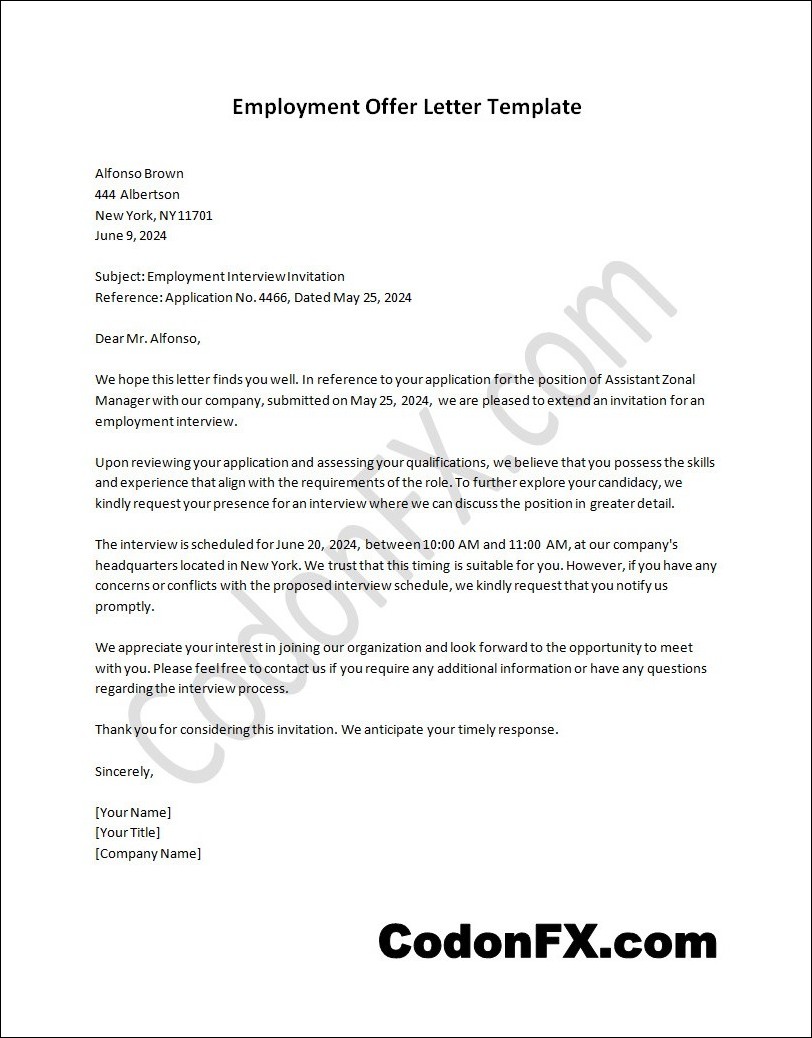
What is an employment offer letter?
An employment offer letter is a formal document that outlines the terms and conditions of a job offer made by an employer to a potential employee. It serves as a written confirmation of the offer and includes important details such as job title, compensation, start date, and any other specific conditions or requirements.
The purpose of an employment offer letter is to clearly communicate the terms of employment to the candidate and ensure mutual understanding between both parties. By providing a written offer, employers can protect themselves legally and establish a foundation for the employment relationship.
One of the key benefits of an employment offer letter is its role in establishing clear expectations and preventing misunderstandings. By clearly stating the terms and conditions of employment in writing, both the employer and the potential employee have a reference point to avoid confusion or disputes in the future. Additionally, an offer letter can serve as a tool for negotiation, allowing candidates to review the terms and potentially negotiate certain aspects of the offer, such as salary or benefits.
Is an employment offer letter legally binding?
The answer to this question depends on several factors, including the language used in the letter and the intention of the parties involved. While an offer letter generally outlines the terms and conditions of employment, it may not always be considered a legally binding contract. However, it is crucial for employers to ensure that the letter is drafted carefully to avoid any potential legal disputes.
The inclusion of specific language in an employment offer letter can determine its legal enforceability. For instance, if the letter states that it is an “agreement” or “contract” and includes essential terms such as salary, position, and start date, it may be deemed legally binding.
On the other hand, if the letter is labeled as a “letter of intent” or contains a disclaimer stating that it is not a contract, it may not hold the same legal weight. It is advisable for employers to seek legal advice when drafting employment offer letters to ensure they comply with applicable laws and regulations regarding contract formation.
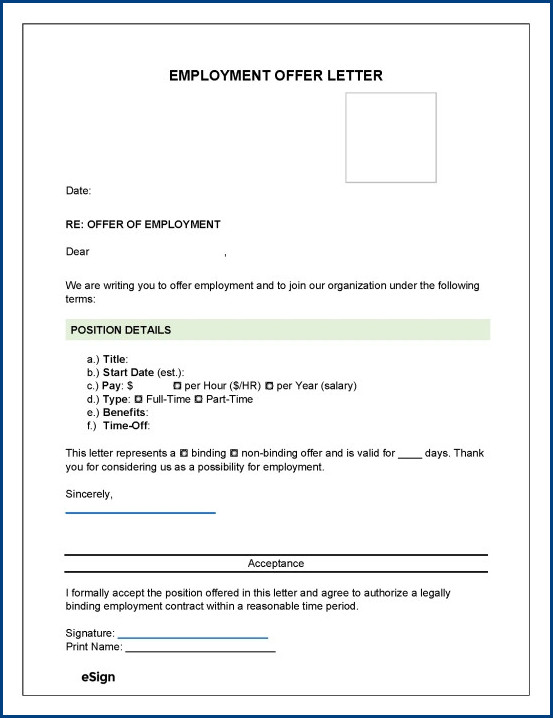
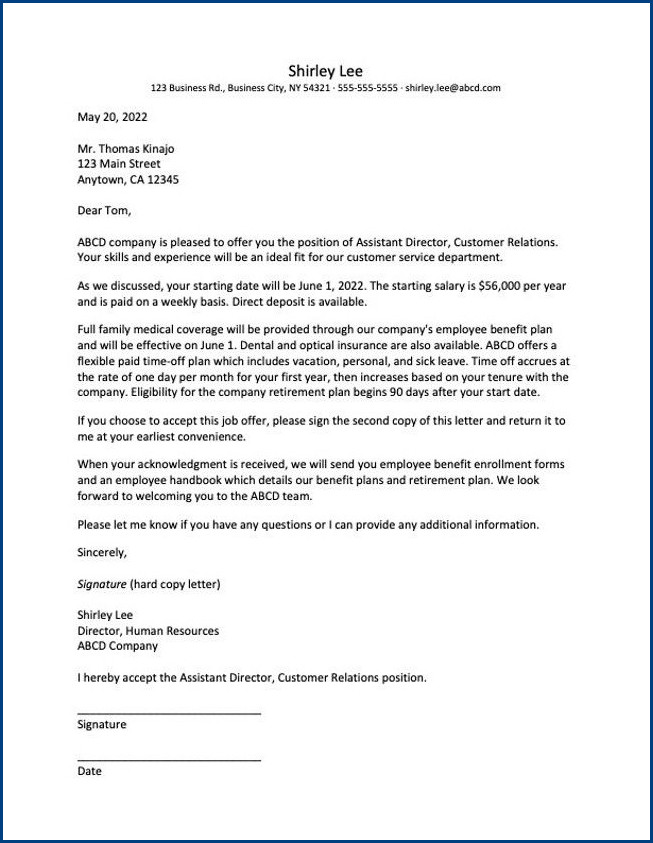
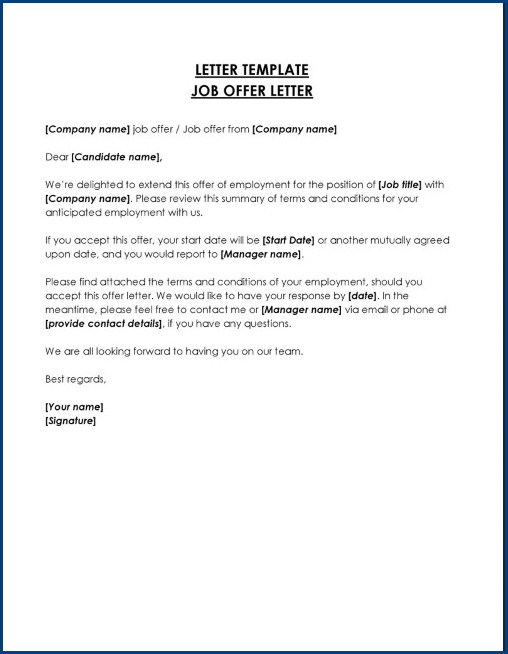
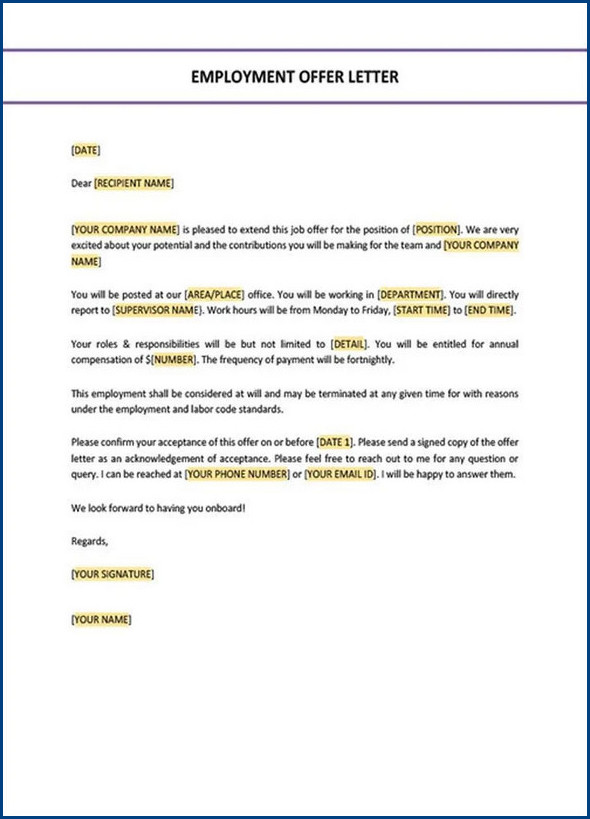
How do I write an employee offer letter?
Here are some key points to consider when writing an effective employee offer letter:
- Include the essential details: Begin the letter by addressing the candidate by name and stating the position they have been offered. Clearly mention the start date, work location, and working hours. It is important to provide a detailed job description, including the key responsibilities and reporting structure.
- Outline compensation and benefits: Clearly state the salary or hourly wage, as well as the frequency of payment. Specify any additional benefits such as health insurance, retirement plans, vacation days, and sick leave. Be sure to mention any conditions or eligibility criteria associated with these benefits.
- Clarify employment terms: Clearly state whether the employment offer is for a permanent, temporary, or contract position. Include any probationary period and specify the conditions for termination or resignation. Outline the notice period required for either party to terminate the employment contract.
It is important to strike a balance between providing enough information to ensure the candidate understands the terms of employment and avoiding overwhelming them with excessive details. The offer letter should be concise, clear, and easy to understand.
Remember to proofread the letter carefully for any grammatical or spelling errors before sending it to the candidate. By following these guidelines, you can create a professional employee offer letter that sets the tone for a positive working relationship with your new hire.
Employment Offer Letter Template | Word – Download